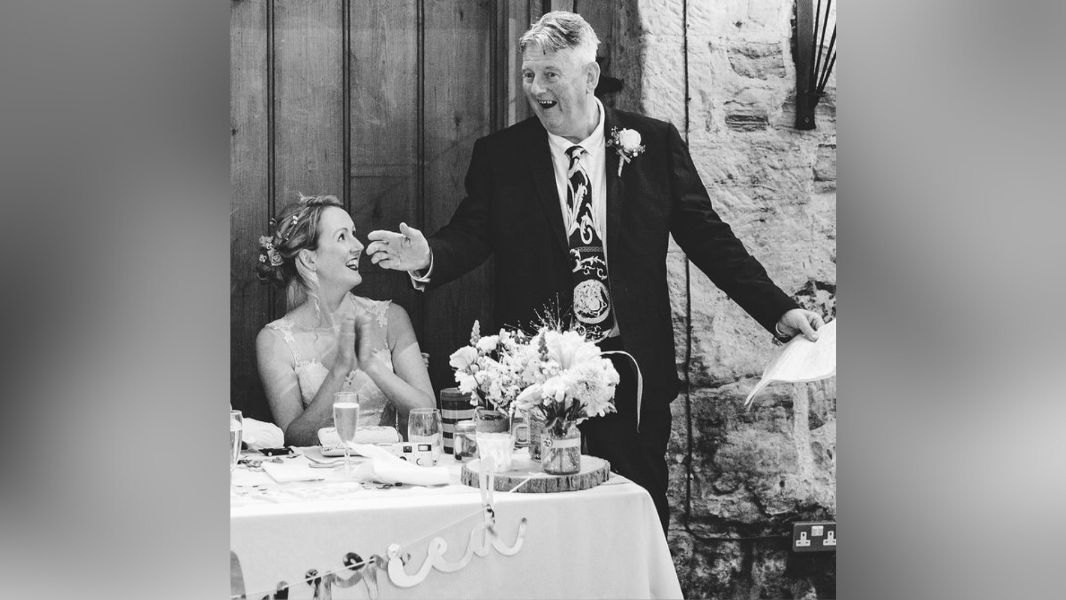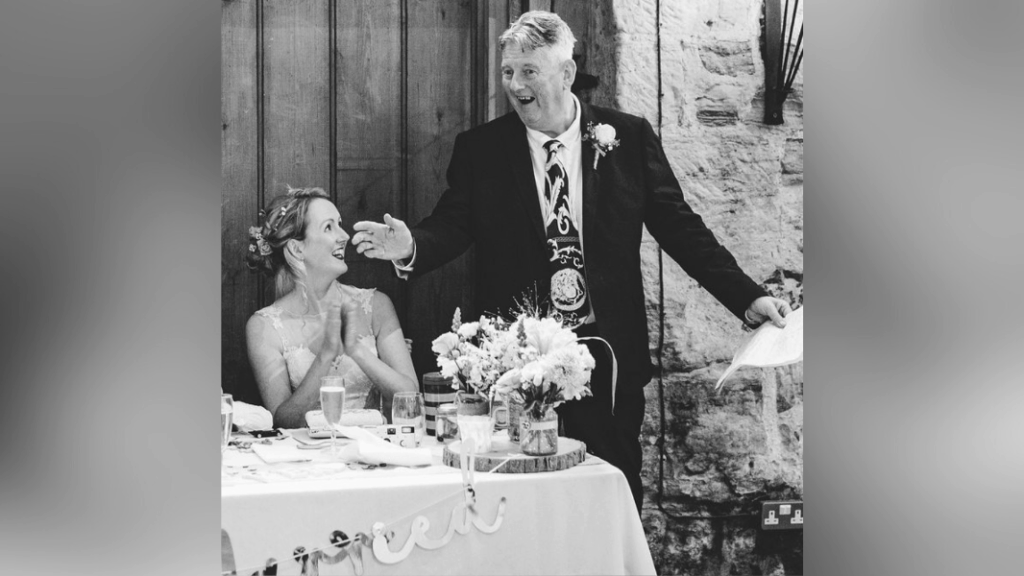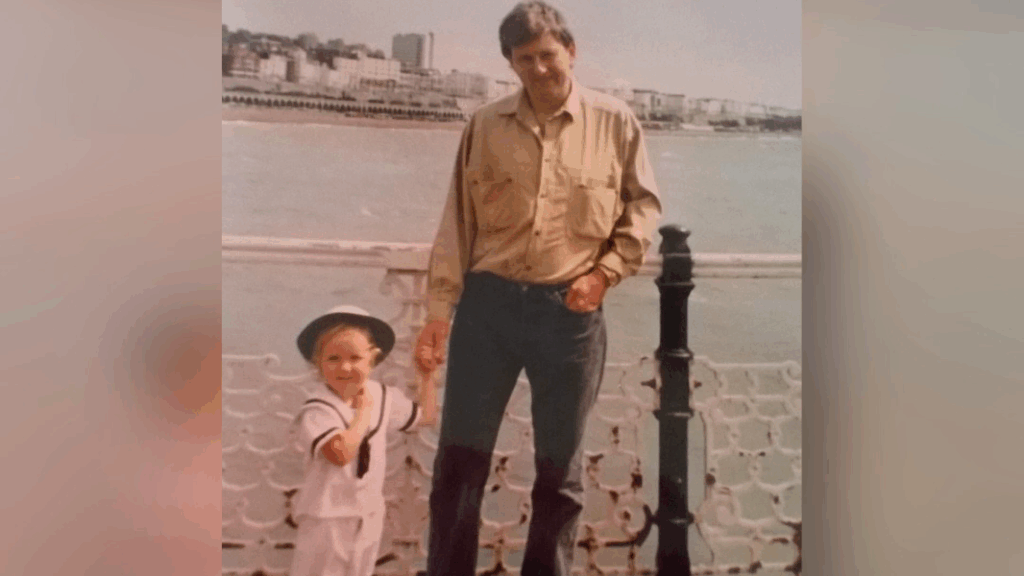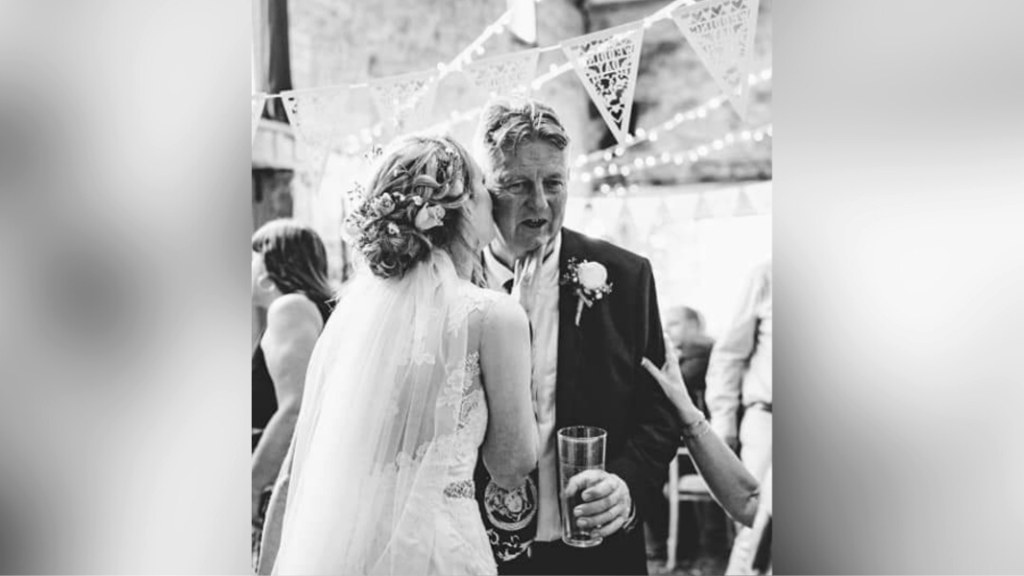

The duality of loving an alcoholic Dad
Dad worked so hard, helped give us an amazing life, was always there. He loved my Mum but drank too much every single day.
Growing up I didn’t know Dad was an alcoholic. I knew he drank too much. I knew it changed who he was. I knew he couldn’t live without it. I knew I felt anxious and scared.
I knew we adapted our behaviour and demeanour in order to keep Dad happy. To lessen the hurtful words shared and believing this would slow the drinking down. I knew it never did.
I knew I hated every time he had a drink and feeling more anxious with each one. I knew it effected my behaviour. I also knew never to talk about it to either Dad or anyone else.

He didn’t stop
Eventually it got too much. I told Dad he drank too much and I hated it. He apologised; said he would cut down. But he didn’t.
Within days he was back to the same levels and hurtful behaviour. We were once again trapped in this cycle. It wasn’t until I was in my 30s when going to counselling for something completely different it all started to click.
How could I not be affected by having an alcoholic Dad? Of course, I am.
Was I completely on my own?
But why didn’t I speak out sooner, seek help, share the complex feelings I had about a man I really loved? Was I completely on my own?
The stigma of speaking out brings shame, disrespect, hurt and any other negative emotion you can attach to it. For me this meant people outside our very small circle didn’t know the full truth.
Dad was the life of the party
They knew Dad was a character, an eccentric, life of the party, up for a laugh and a good old drink. They also knew if anyone was going to be drunk, take it too far, upset someone or be outrageous, it was my Dad. Another duality.
‘Your Dad is so funny,’ said to me with a big smile but I knew behind my back it was ‘He has too much, glad I don’t have to put up with him etc…’
Signs only we could spot
What they also didn’t know was the feeling that seeing the signs only we could spot would bring. The change of tone of voice. The feeling in the house changing.
The sound of another drink being poured. The change in mood and the need to adjust our behaviour to lessen the impact.
To apologise for another embarrassing moment. To prepare for the hurtful words and for it all to be never mentioned the next day.
I hated my Dad’s behaviour when he was drunk but he was still the man that when sober I loved being around. Who was funny, intelligent, almost too intelligent for his own good. Caring, full of incredible stories and facts. Sharing music, cooking out of this world food for me, taking us to amazing places.
Everything was going to be stressful
But all of this, every single part, inextricably linked to the need for a drink. Every situation had to be prepared for to fit in alcohol. Everything was going to be stressful and clouded by alcohol.
I loved my Dad and still do, but sometimes he really hurt me and others. I miss my Dad everyday but not everything he did. My Dad was so full of life on the outside, but I watched him slowly dying.

A family man
My Dad was a family man, proud of what we achieved, but hurt us the most with his behaviours. My Dad taught me so much but made me aware of a generational curse to break.
I loved watching my Dad be a Grandad but knew it wouldn’t be for long. It could never be fully how I wanted him to be because I needed to protect my son.
I can enjoy situations without the stress of dealing with dad’s drinking but comes at a massive cost of not having him around.
Not saying these things continues the stigma
Sadly, my Grandad died from alcoholism at the age of 73. My Dad died on the 22nd December 2023 from alcoholism at the age of 73.
Saying these things out loud is terrifying. But why? Because it makes it true, because you have to acknowledge it, because saying these things about your parent is frowned upon, judged, tutted at, called disrespectful by others.
But this is the complex truth of being the child of an alcoholic and not saying these things continues the stigma.
Lucy
To read more experience stories, go to Support & Advice.

























































































